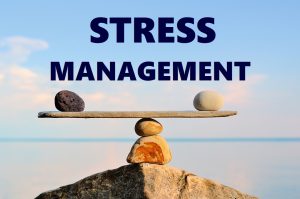Stress is an inevitable part of life, but prolonged exposure can become harmful when left unchecked. Chronic anxiety can lead to health issues such as cardiovascular disease and impaired immunity.
Stressful situations affect everyone differently; here are six signs to watch out for when experiencing it.
1. You’re Feeling Overwhelmed
Feeling overwhelmed can be a telltale sign that it may be time to slow down. Additionally, feeling overwhelmed may indicate an anxiety disorder and should prompt a visit to a mental health professional for advice and treatment.
Overwhelm can manifest itself in numerous ways, with some of the most prevalent examples being feeling overwhelmed, feeling like there’s too much work to be done, focusing on work 24/7, being unable to sleep well and feeling pessimistic. Overwhelm can also cause you to procrastinate on tasks which in turn increases stress and anxiety levels.
Fidgeting, being short or irritable and changing eating habits are also classic symptoms of feeling overwhelmed. If this happens frequently for you, speaking to a therapist for additional support and strategies may help. They can assist with prioritizing tasks more efficiently while practicing effective time management techniques – all to reduce feelings of overwhelm and increase feelings of control. In addition, meditation or mindfulness techniques could be offered to manage stress levels and feelings of overwhelm more effectively.
2. You’re Having Physical Symptoms
If you are experiencing physical symptoms, such as headaches or stomach issues, it is important to recognize how stress may be having an impact. When we are stressed our bodies release stress hormones which cause heart rate and breathing to speed up while muscles may tighten up causing us discomfort. If these physical reactions persist on a regular basis it would be wise to discuss them with a healthcare provider as soon as possible and take steps towards controlling them.
Stressful events in life can lead to many health complications, including weakening of your immune system and frequent illness. If this seems to be happening more often for you than usual, high stress levels could be to blame.
Other signs of stress may include changes to sleep and food patterns, including not getting enough rest or overeating. Stress can also play a part in digestive issues like heartburn, acid reflux, constipation and diarrhea – if this sounds familiar it’s probably time for help; managing stress through taking proactive measures may help regain control of your health and restore control over it!
3. You’re Acting Out
If your child is acting out more frequently or engaging in self-destructive behaviors such as acting out, yelling or cursing more, as well as engaging in self-destructive behaviors – this could be a telltale sign of high stress levels. Bear in mind that their behaviors could be acting as defense mechanisms against inner emotions that they unwittingly feel are unacceptable, overwhelming or anxiety-inducing.
At one end of the spectrum lies eustress or positive stress, which is an effective motivator to take on new challenges and meet them successfully. But when this positive stress becomes too high or stays too long, diseustress or negative stress arises and causes problems like low productivity, poor memory or physical symptoms that have an adverse impact on our wellbeing.
Distress symptoms often include destructive or self-destructive actions, including theft, vandalism and substance abuse. Sometimes such destructive coping behaviors have serious repercussions – legal trouble and damaged relationships are two such outcomes of engaging in such behavior frequently; individuals who act out may have emotional issues such as unresolved trauma or difficulty controlling emotions which cause such reactions – in such cases mental health professionals can help individuals discover healthier coping methods to deal with the stressors they’re facing.
4. You’re Not Getting Enough Sleep
If you find yourself feeling exhausted throughout the day and taking longer than normal to sleep at night, that could be a telltale sign that your body is not getting enough restful restorative rest. This could be caused by either your hectic lifestyle or chronic stress which are interfering with your sleeping patterns and habitually disrupting them.
If you aren’t getting enough restful zzz’s, it can have serious negative repercussions for both mental and physical wellbeing. Lack of sleep impairs concentration and decision-making abilities; it also lowers libido in men.
Sleep deprivation can raise cortisol levels and contribute to depression and anxiety, but you can combat this through simple changes. Try keeping to a regular schedule, cutting back on caffeine and alcohol before bedtime, exercising regularly to relieve stress, and cutting out caffeine at lunch time; plus take up yoga for stress reduction. If these measures don’t work, see a therapist; BetterHelp provides access to licensed therapists in 48 hours who can help manage stress better so you can have restful nights of restful restful sleep!
5. You’re Not Taking Care of Yourself
People often neglect to pay enough attention to their bodies and often dismiss symptoms like fatigue or irritability as minor issues, when actually chronic stress can cause both physical and emotional damage that is often hard to spot on one’s own.
If your close friends and family notice you becoming more short with them than normal or that you seem easily upset, this could be a telltale sign of high stress levels. Stress can affect not only work performance, but also relationships and home life.
Fight-or-flight response is designed to help us deal with perceived threats, but it should never remain elevated over time. If you find yourself succumbing to negative patterns of behavior, now may be the time for changes – you deserve healthy and fulfilling lives!




